Cooperatives represent key actors for sustainability, as they can contribute to the achievement of different SDGs through their economic activities, their social initiatives and not least through the interactions of their activities with the environment. Cooperatives are economic actors, creating job opportunities and economic participation; they are social organizations oriented to promote greater security and protection, as well as greater equality and social justice; and finally they are environmental actors, which through their actions and activities can promote a more sustainable use of natural resources (ILO, 2017).
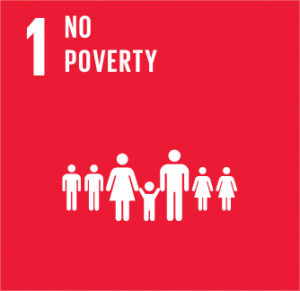
SDG1: Overcoming poverty in all its forms and everywhere in the world.
People living in poverty can create their own economic opportunities by coming together in a cooperative. Through the power of the collective, cooperators can share risk, make decisions together about the cooperative’s future, strengthen and hone their own skills and rein-vest in their communities.
Cooperatives count more than a billion members around the world and provide or organise work for at least 279.4 million people – a considerable contribution towards achieving SDG 1.
Download COPAC Brief Coops & SDG1
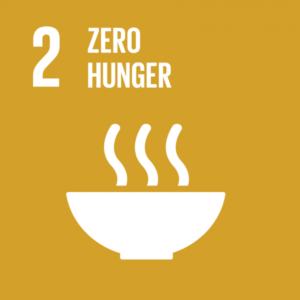
SDG2: End hunger, ensure food security, improve nutrition and promote sustainable agriculture.
As autonomous businesses that are jointly-owned and democratically-controlled by their members, cooperatives are a tested model that can sustainably support small-scale producers and family farmers to achieve economies of scale and improve their access to markets, financing, information and other resourc-es.
Agricultural producers’ cooperatives help them raise productivity and incomes including through joint-ly purchasing inputs, investing on productive assets such as storage and processing facilities, marketing products and organizing skills training. They are also proved to be central to producers’ ability to innovate and adopt improved and resilient agricultural practices.
Consumers’ cooperatives also contribute to food security and sustainable agriculture at the end of the food supply chains. Driven by the seventh cooperative principle “concern for community” and their mem-bers’ aspirations, consumers’ cooperatives promote purchase of foods produced through environmentally sustainable practices or by socially disadvantaged people including women, youth, and indigenous and tribal peoples.
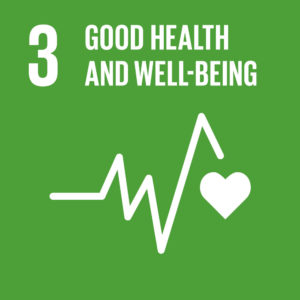
SDG3: Ensure healthy lives and pro-mote well-being for all.
Health cooperatives have been serving their members and their communities over the past two centuries, even in countries with robust universal public health systems.
Health cooperatives have grown in importance over the past 20-30 years in all studied countries. Their growth has been a reaction to the increase in the demand for health services and the growing difficulties faced by public authorities to manage rising health care expenditures.
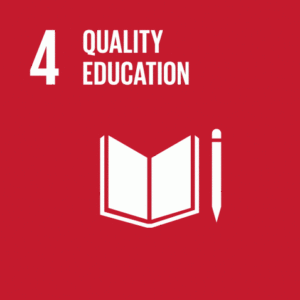
SDG4: Ensuring inclusive and equitable quality education and promoting lifelong learning opportunities for all.
As member-owned, value-driven enterprises, cooperatives have always put education at the core of their guiding principles. Education, training, and information is one of the seven cooperative principles adopted by the International Co-operative Alliance (ICA). Cooperatives directly provide or facilitate access to education and training for their members, elected representatives, managers and workers, as well as the members of larger communities so they can contribute effectively to the development of the cooper-atives and communities. These can range from affordable early childhood care and education (ECCE) and primary and secondary education for members’ children; technical, vocational and tertiary education for youth; and skills training for youth and adults. In many countries, cooperatives of people in the vulner-able groups such as persons with disabilities, migrants and refugees, and indigenous and tribal peoples have been instrumental in providing them with literacy training and employment or life skills training and promoting inclusive and equitable education.
With regards to ECCE and primary and secondary education, cooperatives, with their extensive networks and strong presence in all economic sectors, can also play a key role in eliminating child labour and helping girls and boys to go to school.
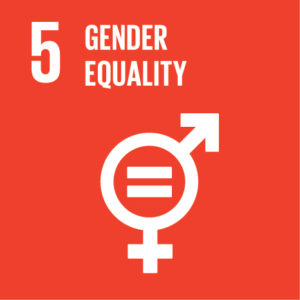
SDG5: Achieving gender equality and empowerment (greater strength, self-esteem and awareness) of all women and girls.
With open membership as a founding principle and equity and solidarity as core values, cooperatives are in-clusive enterprises open to anyone willing and able to become a member and share in the management and profits of the business.
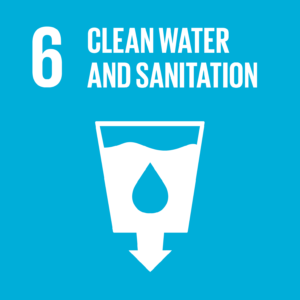
SDG 6: Ensuring the availability and sustainable management of water and sanitation for all.
Cooperatives can play an important role in the availability and sustainable management of water and sanitation. As organizations that exist to meet their members’ needs and work for the sustainable development of their communities, cooperatives can offer a model for people in a community to pool their resources and find solutions for improving water and sanitation, particularly in areas where other public and private entities are unable or unwilling to invest in providing such services.
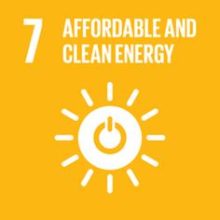
SDG 7: Ensuring access to affordable, reliable, sustainable and modern energy systems for all.
Cooperatives are important contributors to SDG 7. Electric cooperatives bring energy to many rural areas where other companies may not be willing or able to invest in the infrastructure. They can con-tribute to the goal of ‘energy for all’ – the drive to bring clean, modern energy to the 1.3 billion people in developing countries without access to electricity. Being enterprises run by their members, cooperatives also democratically manage their businesses, meaning that they work to ensure energy remains affordable and reliable for their communities.
As businesses are run by their members, cooperatives also manage their activities democratically, which means they work to ensure that energy remains affordable and accessible for their communities.
Cooperatives are driven by concern for the community, which is their seventh founding principle, and clean and renewable energy sources are a priority for many cooperatives. For example, consumer cooperatives seek to integrate sustainable energy into their retail spaces, introducing closed refrigerators, switching to biofuels to power their shops or making their buildings more energy efficient.
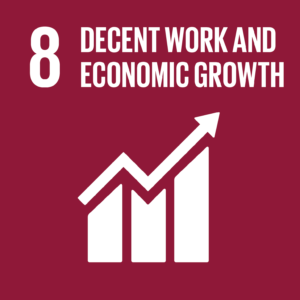
SDG 8: Fostering sustainable, inclusive and sustainable economic growth, full and productive employment and decent work for all.
Cooperative enterprises have proven their ability to both create and sustain jobs. Employment in or within the scope of cooperatives concerns at least 279.4 million people in the world, or 9.46 per cent of the employed popu-lation. Of these, 27.2 million are directly employed by cooperatives, a substantial portion of the global workforce.6Cooperatives can foster economic growth and productive improvement by providing affordable financial services and training opportunities for their members which enable them to make investments, upgrade technologies and diversify their income sources.
Cooperatives have great potential to advance decent work through formalization of the informal economy by cre-ating economies of scale, collective voice and negotiation power.7 They have the potential to create not only quali-ty jobs but also a space for people to pool their resources and skills to create their own economic opportunities. Based on the cooperative principle of open and voluntary membership, they can also be inclusive enterprises that offer the chance to some of the most vulnerable groups, such as low-income women, unemployed youth, persons with disabilities, indigenous people, migrants and refugees, to actively participate in the formal economy. Being democratically run and focused on the needs of their members, cooperatives can be platforms for advancing decent work. They often provide competitive pay and prioritize job security more so than other private sector enterprises. They also invest in the community, by helping establish health clinics and schools, for example.
Cooperatives have a proven record of providing stable employment even in times of economic downturn and are often the business model of choice for preserving jobs in enterprise restructuring through worker cooperatives.
The cooperative values and principles of democratic governance, equality, equity and solidarity and concern for community can also position cooperatives as advocates of labor rights. Cooperatives and their members can be instrumental in preventing and eliminating child labor and forced labor and securing safe working environments.
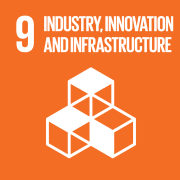
SDG 9: Fostering sustainable, inclusive and sustainable economic growth, full and productive employment and decent work for all.
Cooperative enterprises have demonstrated their ability to create and sustain jobs. Employment within or in the cooperatives sector affects at least 279.4 million people worldwide, or 9.46% of the employed population. Of these, 27.2 million are employed directly by cooperatives, a substantial part of the global workforce. Cooperatives can foster economic growth and productive improvement by providing accessible financial services and training opportunities for their members to invest, update technologies and diversify their income sources.
Cooperatives have great potential to advance decent work through the formalization of the informal economy by creating economies of scale, collective voice and negotiating power. They have the potential to create not only quality jobs, but also a space for people to put in common their resources and skills on which to base and grow their economic opportunities. Based on the cooperative principle of open and voluntary membership, they can also be inclusive enterprises that offer the possibility to some of the most vulnerable groups, such as low income women, unemployed young people, people with disabilities, indigenous peoples, migrants and refugees, to participate actively in the formal economy. Being democratically managed and focused on the needs of their members; cooperatives can be platforms to promote decent work. They often provide competitive pay and prioritize job security more than other private sector companies. They also invest in the community, for example by helping to create health clinics and schools. Cooperatives have a proven track record of stable employment even in times of economic recession and are often the preferred business model for preserving jobs in corporate renovation through worker cooperatives.
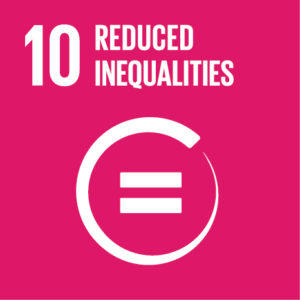
SDG 10: Reducing inequality within and between nations.
As member-owned, people-focused and value-based enterprises, cooperatives are in a privileged position to promote equality and inclusive economic development. Their values of “equality and fairness” are translated into equal voting rights for members and access to cooperative products and services, as well as fair distribution of surpluses.
For socially disadvantaged women and men, including indigenous people, people with disabilities, migrants and refugees, cooperatives not only provide them with accessible services, but also help them to cooperate with other partners in communities and engage in social and economic activities to improve their livelihoods.
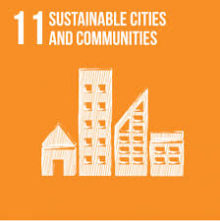
SDG 11: Making cities and human settlements inclusive, safe, durable and sustainable.
Environmental cooperatives keep urban areas clean by collecting and recycling waste and maintaining green spaces. Taxi cooperatives improve the urban mobility of commuter workers, the elderly and people with disabilities. Many workers’ and social cooperatives help to safeguard the natural and cultural heritage of their communities by participating in sustainable tourism and improving disadvantaged areas.
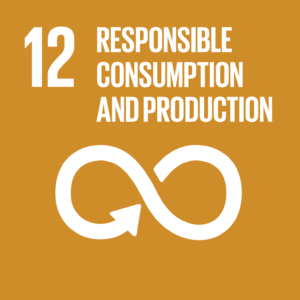
SDG 12: Ensuring sustainable model of production and consumption.
Cooperatives have sustainability in their DNA, with “concern for community” as the seventh of their guiding principles. Because their identity is based on ethics and values, cooperatives understand that their businesses cannot survive long-term without sound environmental practices. For this reason, many cooperatives have been innovators in sustainable resource management in their sectors – launching consumer awareness programmes, developing recycling policies and spearheading food waste reduction initiatives, to name a few. In order to ensure sustainability along the supply chain, cooperation between producers and consumers is crucial. Cooperatives at both ends of the supply chain have been joining forces to shorten value chains, improve product traceability and adopt environmentally friendly practices. Strengthen-ing cooperation between cooperatives can create more inclusive, transparent supply chains, result in mutual benefits for producers and consumers and accelerate a shift towards sustainability across the supply chain.
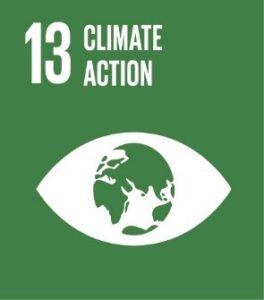
SDG 13: Promoting action at all levels to combat climate change.
Cooperatives are collective endeavors that are illustrative of the type of actions required in,4 and they are increasingly becoming involved both in climate change adaptation (e.g. mutual insurance for crops; agricultural cooperatives supporting diversification of crops or improved watershed management, etc.) and mitigation (e.g. renewable energy cooperatives, forestry and agroforestry cooperatives). Cooperatives can be particularly effective in strengthening resilience and adaptive capacity of local communities to natural disasters through awareness raising, training, or adapting new technologies. They can play a key role in boosting the capacities of farmers towards efficient use of the available genetic resources, improved soil fertility and the regeneration of natural resources, thus generating positive externalities and contributing to climate change adaptation and mitigation.
In urban areas, cooperatives of waste pickers exist in waste management systems, particularly in India, Brazil, Colombia and South Africa. They not only provide much needed services for improved waste management and recycling, but also support their members to formalize, and improve their access to occupational safety and health, training, and financial services. Renewable energy cooperatives are gradually gaining ground in Europe harnessing wind and solar power as well as biogases.
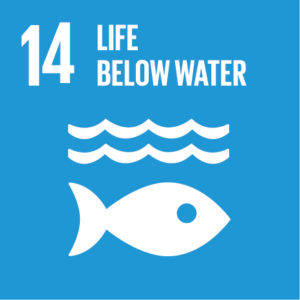
SDG 14: Conservation and sustainable use of oceans, seas and marine resources for sustainable development.
Cooperatives can also provide small-scale fishers and fish workers with tools to both better manage and con-serve the oceans, seas and marine resources and comply with fisheries management regulations, such as closed seasons. They have important roles to play in facilitating information exchanges, improving communities’ negotiating power with market intermediaries, building partnerships, networks and linkages to other organizations, and fostering sharing of traditional and indigenous knowledge. Cooperatives and other professional and informal organizations can facilitate their members’ involvement in policy- and decision-making processes relevant to small-scale fishing communities.
In empowering fishers and fish workers, cooperatives play a key role in helping to address unequal power relationships and in supporting and empowering marginalized populations within the sector, such as women. Women’s membership in cooperatives can provide them with access to social security, help to strengthen their leadership and entrepreneurship skills, and enable them to voice their own interests and needs in decision-making processes that affect them.
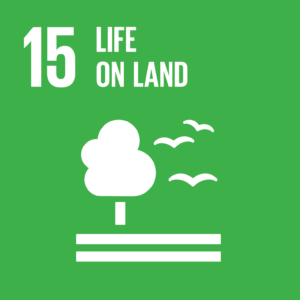
SDG 15: Protecting, restoring and promoting sustainable use of the Earth’s ecosystem.
What is the role of cooperatives in protecting terrestrial species and ecosystems? As enterprises based on values and principles, cooperatives contribute to the sustainable management of natural resources in a vari-ety of ways. They offer a forum for community members to find solutions for environmental change, such as managing the land resources they use responsibly or diversifying their economic activities to embrace green economic ventures.
Forestry cooperatives, for example, promote the sustainable use of forest ecosystems while securing the livelihoods of their members and workers. With ‘concern for community’ as one of their founding principles, many cooperatives also invest in ecologically focused work, such as reforestation proj-ects and conservation efforts.

SDG 16: Peace, justice and strong institutions.
Cooperatives promote communal living and communal security and therefore have a strong capacity to build mutual understanding and contribute to conflict eradication and promotion of peace while building inclusive societies.
The International Cooperative Alliance (ICA) passed a resolution in 2009 articulating the cooperative commitment to promoting and creating links between divided people, supporting social inclusion and conflict mitigation. Many strong cooperative movements that exist today grew out of times of crisis and as a response to the needs of vulnerable people living in difficult conditions.
Download COPAC Brief Coops & SDG 16
Cooperative & Peace: Report on Coop contribution to peacebuilding and conflict resolution (2019)
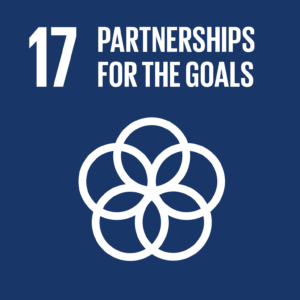
SDG 17: Strengthening the means of implementation and renewing the global partnership for sustainable development.
